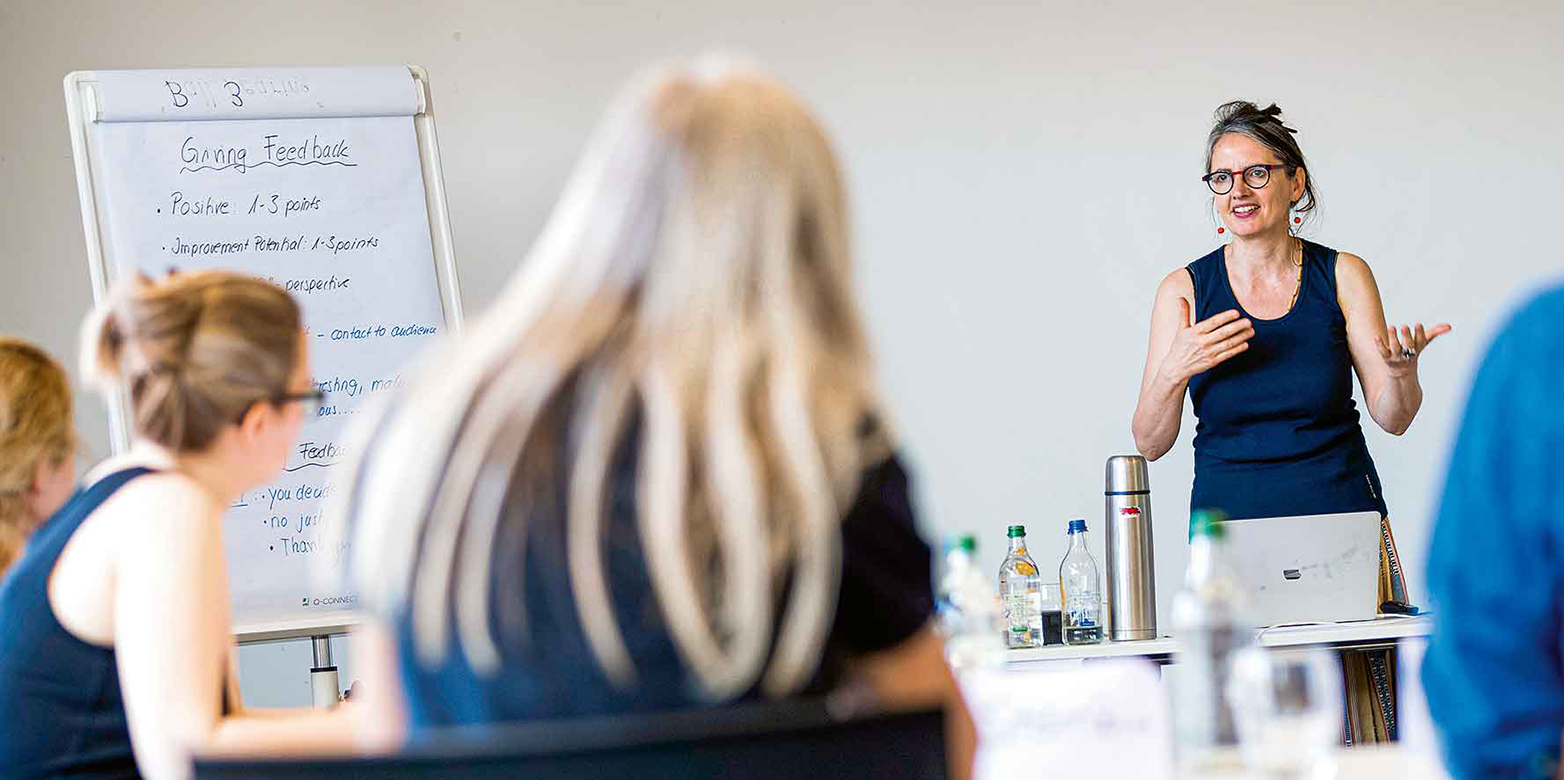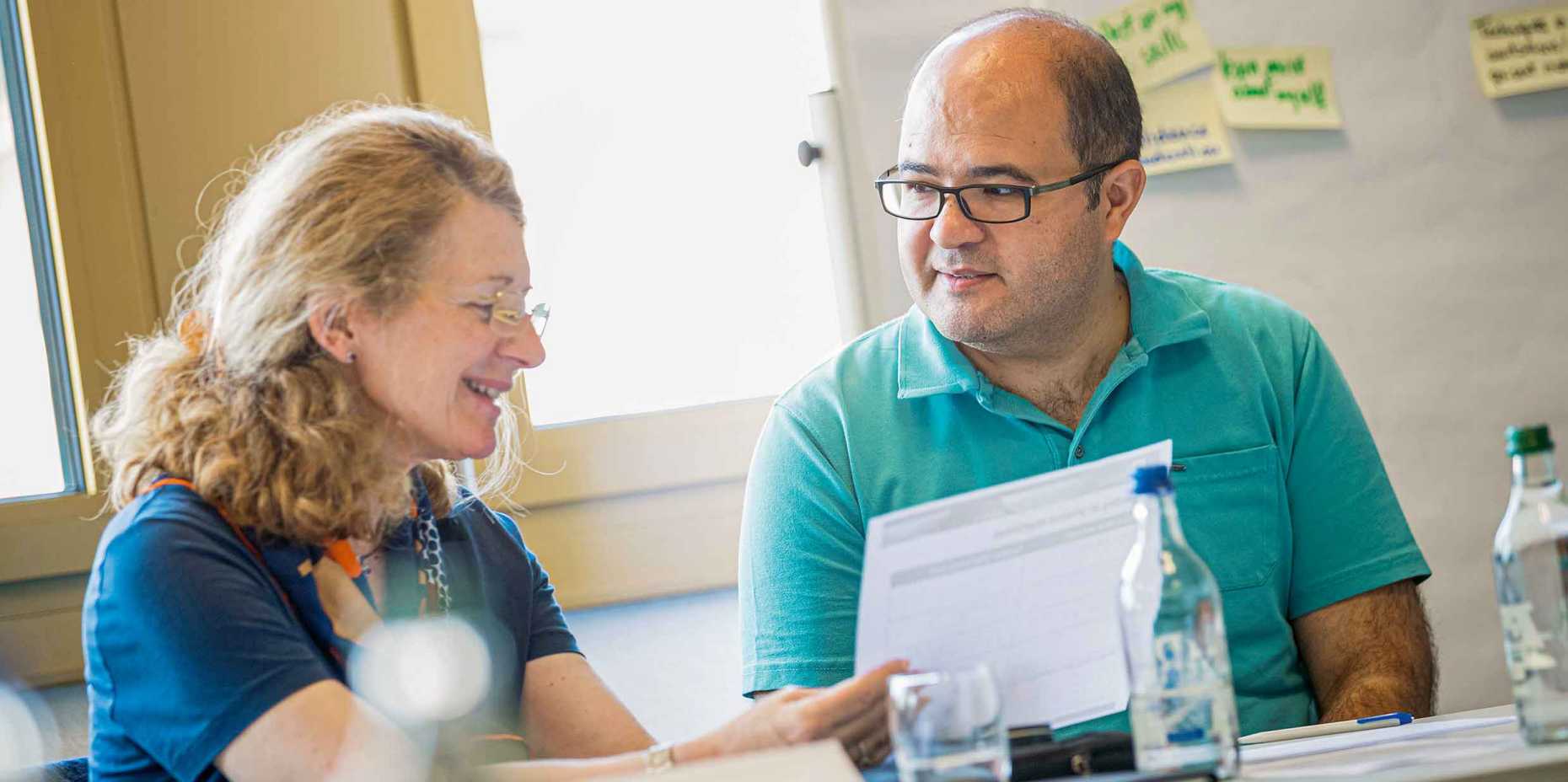Personal initiative is required
ETH supports its staff in their personal and professional development, offering a variety of opportunities for continuing education. life takes a look at what’s on offer and highlights the key points when it comes to future staff development.

How can I interrupt someone at a meeting who is speaking for too long? And what sorts of things do I need to think about when I’m moderating a discussion? Ahmet Demirörs hopes that the Facilitating Meetings and Workshops course will provide him with answers to these questions. Demirörs, senior assistant at the Department of Materials, is one of nine participants in an internationally diverse group meeting held on a June morning at the School for Continuing Education. ETH’s aim in offering the course is to provide researchers and those managing scientific projects with the skills they need to moderate meetings and workshops. The course is run by Ruth Förster, who worked in the ETH Domain for 15 years and is now an independent trainer and coach.
The meetings and workshops course is just one example of the diverse range of training opportunities available to ETH staff to support them in their personal, professional and methodological development. Alongside the HR department, many other internal units are also offering further training courses. The HR courses cover topics ranging from leadership, career planning and presentation techniques right through to project management and coping with stress. The format of the training is as varied as the content, with some sessions taking the form of short afternoon events or half-day workshops, while leadership courses can spread over several days. ETH also supports external training opportunities.
The Personnel and Organisational Development team is responsible for the content and coordination of the courses. The design of the programme is based on the HR strategy, but is also demand-led – some topics, for example, grow from the results of employee surveys. Many of the courses are in demand, but it is important to adapt the format regularly to participants’ needs, as well as to introduce new methods from time to time. For example, elements of improvisational theatre were incorporated into a pilot conducted with an eye to redesigning the course on leading goal-oriented discussions with managers.

Learning by Doing
In most cases, the courses are open to all employees. The goal is to appeal to both technical and administrative staff as well as academic employees, which is why a greater number of courses are being offered in English.
The Facilitating Meetings and Workshops course is one of those being conducted in English. By now, the ice in this diverse group has been well and truly broken; the participants know each other well and there is a shared sense of trust between them – doubtlessly aided by the “inside-outside circle” method the group learned this morning. The participants form an inner and an outer circle so that they are facing each other and interact with different people by one circle moving in a given direction. After the lunch break, one participant will have the chance to implement the method herself. Participants are able to put their newly acquired skills to use and receive direct feedback throughout the entire day, providing an interesting mix of theory and practice.
Using and adding to your own knowledge every day is important for personal development. The way people think about courses can be quite outdated, says Eric Ryf from the Personnel and Organisational Development at ETH. “You don’t learn simply by attending a course. The most important thing is how you can directly implement what you’ve learned. That’s why we often work with typical examples from a workday during our seminars.” In terms of personal development, it is important to keep asking yourself whether what you are doing satisfies your curiosity and matches your skills and how you can develop further. ETH wants to encourage personal initiative from staff while also supporting managers in their roles as employee developers.
Leadership and coaching culture
Leadership training is well established at ETH. “The most valuable thing for me was discovering my own leadership weaknesses as part of the group and then getting specific tools to overcome them,” says Andreas Fichtner, Professor at the Institute of Geophysics, who took part in the eight-day leadership course last year. Until now, only a handful of professors
have been among the participants. But that’s all set to change: this year will see the launch of a series of leadership events for current professors, with training opportunities already in the pipeline for new professors.
Establishing a strong coaching culture is also key to staff development. Management staff should receive more opportunities to work together with a personal coach. “Getting coaching isn’t a sign of weakness. A coach doesn’t solve the problem for me, but helps me to overcome my challenges independently,” says Martin Ghisletti, Head of Personnel and Organisational Development. Last but not least, leadership for those who do not hold a position of responsibility is also an important subject. In the new seminar on lateral leadership, project leaders discover how they can extend their sphere of influence even if they don’t have managerial authority.
Being able to influence others in a targeted manner is also an important skill when leading meetings. “Good preparation is also key, as is setting yourself achievable learning goals for each session and collecting feedback,” says Förster, summarising some of the learning outcomes from the course. Possible solutions to Demirörs’ question on how to interrupt overeager meeting participants were also worked through as part of a brainstorming session – for example, by bringing in another member of the meeting. “I learned a number of ways I can react in situations like this. I might not get it quite right the first time, but I’ll give it a go and keep practising!”
This article appeared in the current ETH magazine "life".
Comments
No comments yet